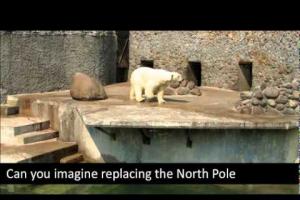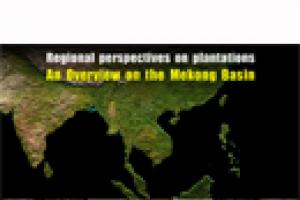The Japanese paper-making company Oji Paper Group runs a paper mill in Nantong, East China, and had plans to build a pipeline for wastewater discharge from the mill. However, in July, thousands of residents in the neighbouring coastal city of Qidong took to the streets in protest amid growing concerns over the pollution the project would cause. They feared that wastewater containing contaminants and toxic matter would be dumped into the sea, polluting the area and killing the local fish stock. The pipeline would discharge around 150,000 tons of wastewater per day.
China
Bulletin articles
29 June 2009
PRESS RELEASE. In a bold outpouring of public concern for Southeast Asia’s Mekong River, more than 15,000 people from within the six-country Mekong region and around the world have signed a “Save the Mekong” petition urging governments to abandon plans for hydropower development along the river’s mainstream. The petition – written in seven languages - will be hand-delivered to Thailand’s Prime Minister H.E.
Other information
30 May 2009
Eucalyptus plantations have become a harsh issue for Chinese farmers of the villages north of the city of Hepu in the province of Guangxi, south of China. Their collective land has been expropriated to make way for monoculture tree plantations.
Behind the move is the Finnish-Swedish forestry giant Stora Enso, that plans to lease 180,000 hectares of land for half a century to plant eucalyptus that will feed the company’s pulp mill near the city of Beihai.
Bulletin articles
29 April 2009
The Mekong River is one of the world’s major rivers and flows along 4,350 km (2,703 miles) draining an area of 795,000 km2. (1) As Aviva Imhof from IRN beautifully describes it, “the Mekong River is a changing kaleidoscope of cultures, geography and plant and animal life. From a small trickle in Tibet, the river quickly gathers steam and carves magnificent gorges through Yunnan Province of China.
Other information
29 April 2009
The entrance of China into the global capitalist market with the ensuing accelerated expansion of its economy has been marked by a growing hunger for timber.
Publications
15 December 2008
Eucalyptus, oil palm, rubber and jatropha monoculture plantations are expanding onto local communities’ lands and forests in the Mekong region’s countries. Promoted under the guise of development, poverty alleviation and even climate change mitigation, such plantations are resulting in severe social and environmental impacts.
Bulletin articles
15 December 2008
The inter-meshing of the six economies in the Mekong Basin since the 1990s has been fostered under the Greater Mekong Sub-region economic cooperation programme. This was aimed at increasing the flow of cross-border investment from countries with considerable economic might such as China, Thailand and Vietnam into neighbouring countries such as Laos PDR and Cambodia, which have a ‘doors wide open’ approach calling for foreign companies to come to invest.
Other information
15 December 2008
China’s growing pulp and paper market is being the world's fastest. Although per capita paper consumption is less than ten per cent of the amount consumed in the US, China accounts for 14 per cent of global paper consumption. Jaakko Pöyry has estimated that paper consumption in China would increase at 4.4 per cent a year between 2000 and 2015. Much of that “consumption” is used in packaging of goods for export, which means that real per capita paper consumption in China is actually much lower.
Other information
1 August 2008
WRM information sheets on GE tree research
First posted: 1 August 2008
Modified: 27 November 2008
Modified: 7 August 2009
Last update: August 2014
Tree species being manipulated:
Bulletin articles
5 December 2007
In the general public perception, trees are automatically associated with environmental benefits, and there is consumer demand for “cuddly” offset tree-related projects, as opposed to the type of industrial emissions reductions that have dominated the Clean Development Mechanism (CDM) market. It is estimated that some 40% of carbon credits generated in the voluntary market comes from tree-related projects.
Bulletin articles
17 October 2007
Whenever the expression “planted forests” is used, the concept can be traced back to the Rome-based Food and Agriculture Organization (FAO). The more the concept is challenged by local peoples and NGOs struggling against plantations, the more the FAO builds up support to maintain it.



